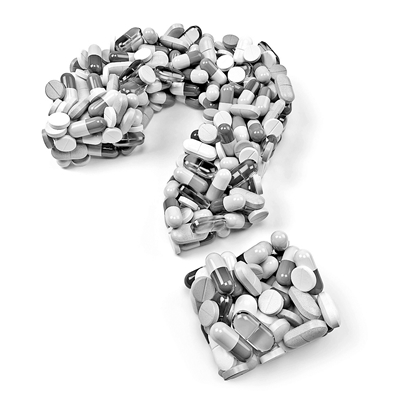Before taking antibiotics, ask the doctor these 12 questions.

Before you leave the doctor’s office or pharmacy, getting the answers to the following questions can make the antibiotics you take as effective as possible.
Why should I take this medicine?
Norman Tomaka, a spokesman for the American Pharmacists Association, believes that every patient should confirm and understand why doctors prescribe antibiotics for them. According to the research results published in the journal of the American Medical Association by researchers from the US Centers for Disease Control and Prevention, from 2010 to 2011, nearly one-third of oral antibiotic treatment prescriptions in the United States were wrongly prescribed by doctors. Taking unnecessary antibiotics will make bacteria resistant to drugs, so have an open discussion with your doctor to make sure your prescription is the best choice.
When should I take the medicine?
Antibiotics have to reach a certain concentration in the blood to take effect, so take the medicine on time. Taking medicine when you wake up in the morning, before lunch and before going to sleep can ensure that you will not forget to take medicine to the greatest extent.
Can antibiotics be taken with food?
Eating while taking medicine will affect the way drugs are absorbed in the body, but it can also prevent nausea caused by drugs that may irritate the stomach. If the drug instructions state that you should take it on an empty stomach, follow the instructions, because food may hinder the absorption of the drug in the blood.
Do you want to avoid eating certain foods when taking medicine?
Some drugs may have adverse reactions to certain foods. For example, dairy products will reduce the efficacy of tetracycline, because calcium in food combines with antibiotics, resulting in a decrease in the body’s absorption. Make sure you are aware of any food that may hinder your recovery.
Do you want to drink a large glass of water when taking the medicine?
Water can dilute the contents of the stomach and help you absorb the effective components of antibiotics before the stomach is stimulated. While drinking enough water can help prevent nausea caused by most drugs, some antibiotics need to drink a whole glass of water to be completely absorbed. Antibiotics in capsule form can prevent it from being dissolved prematurely until it enters the stomach; Drinking more water will help these antibiotics to be completely absorbed.
6 Do you want to eat probiotics while taking antibiotics?
Not all bacteria in your body will make you sick. Some bacteria in your stomach are essential to keep your intestines or reproductive system healthy. However, antibiotics do not know which bacteria are good and which bacteria are bad; They will kill all bacteria, including those that are good for human health. When drugs attack good bacteria, you may have gastrointestinal discomfort, urinary tract infection or yeast infection. To prevent these side effects, the doctor may suggest that you eat yogurt rich in probiotics or take probiotic supplements.
7 what should I do if I miss the medicine?
Theoretically speaking, there is a fixed time interval for each medication. In real life, you may forget to take the medicine or take it late. If you miss the medication time, it’s important to know what to do in advance, so that you won’t look around for information in the dead of night. Some drugs should be taken in time after missing the correct time, while others should be taken normally next time when they are forgotten, so read the drug instructions carefully.
When should I feel better after taking medicine?
You should take the medicine completely as long as the doctor prescribes it, instead of stopping taking it once the symptoms disappear, because the bacteria in your body may still be at an unsafe level. However, it is important to know how soon you can recover. Generally speaking, if you don’t get better after taking the medicine for three days, you need to see a doctor again, because at this time, either the drug choice is incorrect or something else has happened.
9 What side effects are expected from the antibiotics I take?
Although only a small proportion of people have side effects after taking antibiotics, you need to know what adverse reactions your body will have. Some drugs may cause shortness of breath, while others may cause urticaria. If there are suspected side effects, you should consult your doctor whether to continue treatment or switch to another treatment.
Can I crush the pills?
If you have difficulty swallowing pills, consult your doctor before you plan to crush them, because antibiotics in pill form are absorbed in a different way from capsules. Some antibiotics are made in liquid form, which may be a better choice for some patients.
Will this antibiotic interact with other drugs I take?
The doctor may ask you what other drugs you have taken to avoid adverse reactions, but don’t forget birth control pills or over-the-counter supplements and vitamins easily. Some antibiotics may reduce the contraceptive effect, which means you may need to take another contraceptive method. In addition, iron-containing supplements combine with some antibiotics, making the latter unable to be absorbed.
What should I do if I have a history of antibiotic allergy?
Being allergic to an antibiotic not only means that you must avoid this drug, but also beware of other related drugs belonging to the same family. Therefore, after taking the medicine, you should observe it carefully, stop taking it immediately and ask the doctor for help if there is an allergic reaction. (Compile/Guo Shaofeng)